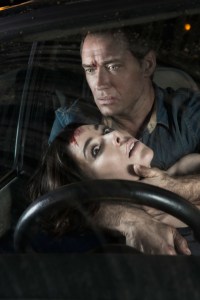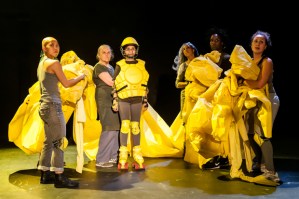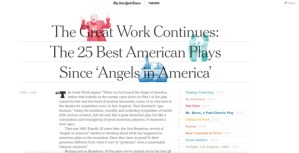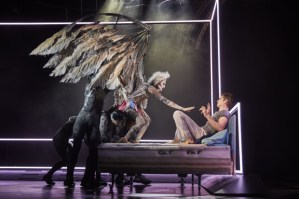The Wooster Group in six shows
Experimental American theatre company The Wooster Group are arriving in London with The Town Hall Affair. Never heard of them? Here’s a history in six shows
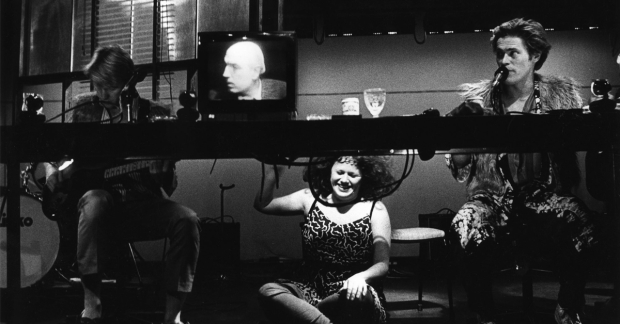
© Bob Van Dantzig
Experimental American theatre company The Wooster Group arrive in London this month with their mixed media piece The Town Hall Affair. The piece is based on the film Town Bloody Hall, which documented a remarkable Town Hall meeting in 1972 where Norman Mailer chaired a discussion between feminists such as Germaine Greer and Diana Trilling entitled "A Dialogue on Women's Liberation". By all accounts the piece is hyper-relevant for our times and, as a four star review from Time Out New York might suggest, very good. Here are six landmark productions from the ensemble's history.
Beginnings
The initial beginnings of The Wooster Group were in 1975, borne out of Richard Schechner's The Performance Group which ran in in New York between 1967 and 1980. The Wooster Group found its name – inspired by the street on which it is based – in 1980 and was formally founded by seven theatre artists: Jim Clayburgh, Willem Dafoe, Spalding Gray, Elizabeth LeCompte, Peyton Smith, Kate Valk and Ron Vawter. It has had its home at The Performing Garage in Soho since it first began and was bought in the early '70s. Before that the space was a stamping/flatware factory. Since 1975 The Wooster Group has been a full-time, ongoing ensemble, which is constantly changing. LeCompte has directed all of the pieces, which are often rehearsed for months or years before they are finally staged.
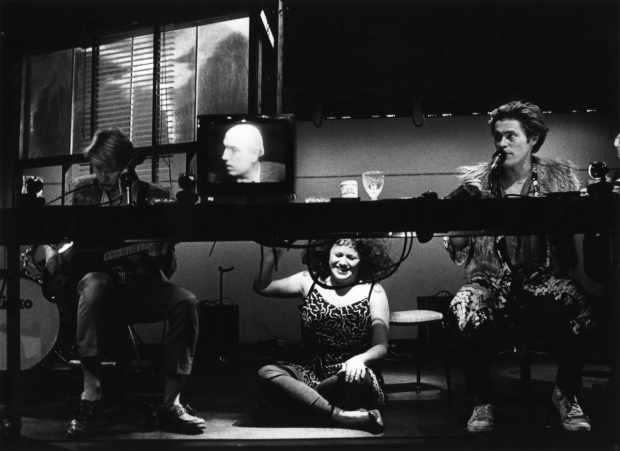
© Bob Van Dantzig
L.S.D (Just the High Points)
Initially developed in a work-in-progress reading in January 1983, the piece caused a stir when it arrived on the scene and toured in the UK to the Edinburgh Festival, Riverside Studios in London and Chapter Arts Centre Cardiff in 1986. L.S.D featured the likes of Steve Buscemi, Peyton Smith, Willem Dafoe, Maria Myers and Ursula Easton and explored social and moral unrest in the US via the beat generation and psychedelic uprising of the '50s and '60s as well as the witchcraft hysteria in Salem during the 1690s.
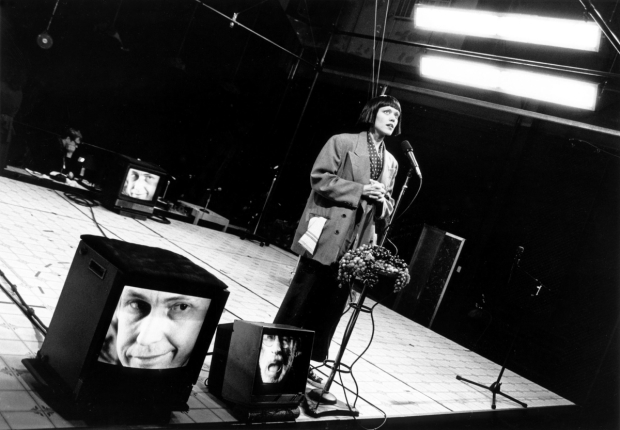
© Mary Gearhart
Brace Up!
Brace Up! was developed in 1990, before touring over Europe and arriving at Riverside Studios in 1993. The piece is the company's version of The Three Sisters, and was performed in London with Willem Dafoe, but is about as far removed from Chekhov as you could get. An empty stage, cables, monitors, microphones and a television chat show host are the main focus.
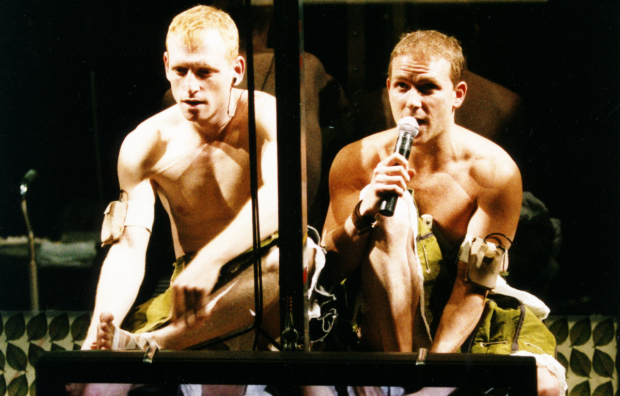
© Mary Gearhart
To You Birdie (Phedre)
The Wooster Group returned to the London International Festival in 2002 with this deconstruction of Racine's Phedre, which Michael Billington didn't like an awful lot, giving it a two-star write up in the Guardian. The piece has recurring badminton images and, as is usually the case with this company, a lot of high-tech audio and visual equipment.
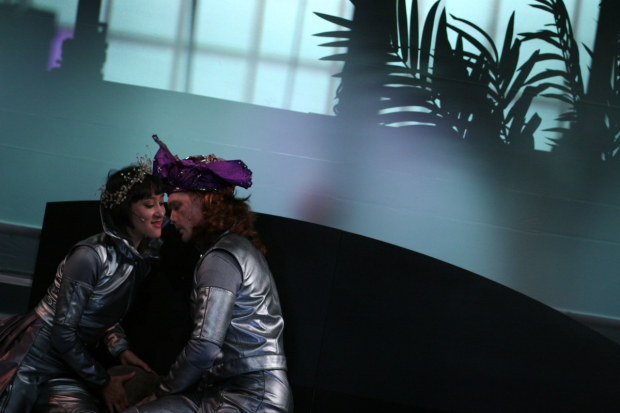
© Paula Court
La Didone
Performed first in the UK at the Edinburgh International Festival in 2007, La Didone is a mash up of Francesco Cavalli's 1641 opera and Mario Bava's 1965 cult movie Terrore nello Spazio (or Planet of the Vampires). When New York Times' Ben Brantley wrote about the piece in 2009 he said: ‘When it comes to striking sparks from crashing art forms and time zones, nobody beats The Wooster Group at the top of its game.'
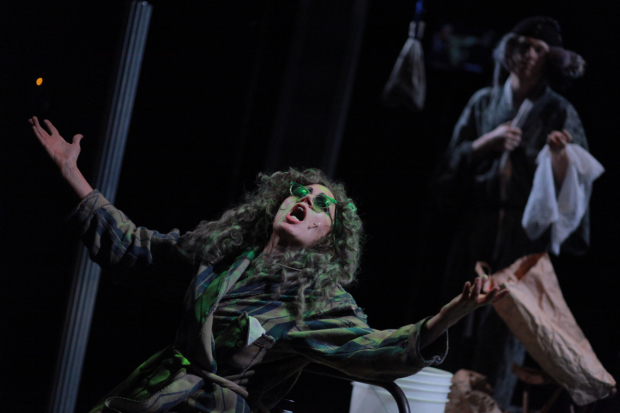
© Paula Court
Vieux Carré
Tennessee Williams' play is the subject of this Wooster group piece, which opened at the Edinburgh International Festival in 2010. The original is an autobiographical play, set in a boarding house in the French quarter of New Orleans in the late 1930s. The Wooster Group's version experiments with modes of expression for Williams' lyric voice and the piece pursues the playwright himself, according to Time Out New York's five-star review.
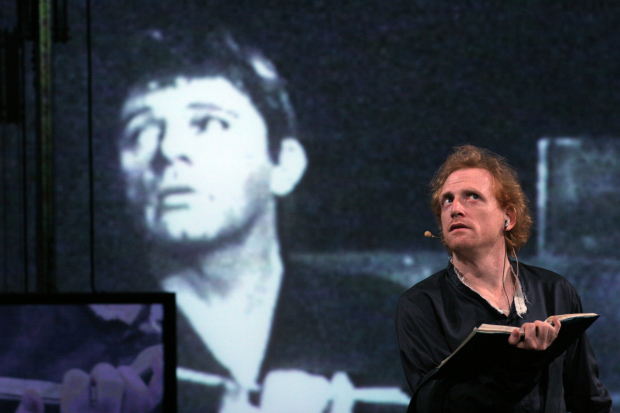
© Paula Court
Hamlet
You may think you've seen all the Hamlets, but The Wooster Group's Hamlet is probably unlike any other. This version, which was seen in 2013 at the Edinburgh International Festival, re-imagines Richard Burton's 1964 Broadway production, which was directed by John Gielgud. The Burton Hamlet was filmed with 17 camera angles and the Wooster Group attempts to reconstruct the theatre piece from the film. It sounds a bit bonkers. But very Wooster Group.
The Town Hall Affair runs at the Barbican between 21 and 24 June as part of the Centre's cross-arts season, The Art of Change.


